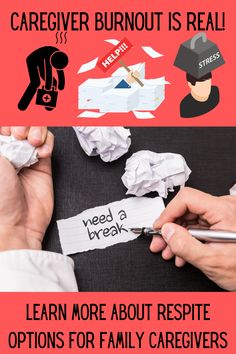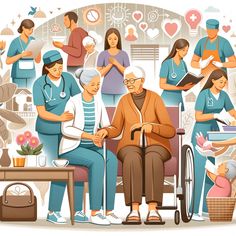
Table of Contents
Night Shifts on Caregivers’ Mental Health
The caregiving landscape is rapidly evolving. With an aging population and rising healthcare demands, caregivers both professional and informal play a critical role in supporting individuals who require assistance. Night-shift on caregivers’ mental health and Night Shift Mental Health emerges as a pressing concern within this dedicated workforce.
Nurses, home health aides, and even family members caring for loved ones often find themselves working long stretches through the night. While their dedication is admirable, these night shifts come at a cost. Disrupted sleep patterns and altered schedules can wreak havoc on a caregiver’s mental well-being.
This article delves into the challenges associated with night-shift on caregivers’ mental health. We’ll explore how these unconventional work hours disrupt natural circadian rhythms, increasing the risk of sleep disorders and mental health conditions. Furthermore, we’ll examine the impact on social life and overall well-being, highlighting the potential consequences for caregivers who shoulder this vital responsibility. By understanding these challenges, we can advocate for solutions and support systems to ensure caregivers can prioritize their mental health while providing exceptional care to others.
The Body’s Internal Clock: Understanding Circadian Rhythms and Sleep

Our bodies operate on a natural internal clock known as the circadian rhythm. This 24-hour cycle regulates various physiological processes, including sleep-wake patterns, hormone production, and digestion. Disruptions to this delicate system significantly impact night Shift Mental Health.
Light exposure plays a crucial role in synchronizing the circadian rhythm. During daylight hours, the body suppresses melatonin production (the sleep hormone) and increases alertness. Conversely, darkness signals the body to wind down and prepare for sleep by producing melatonin.
Imagine a simple diagram (not included in text format) with a circular pattern representing the 24-hour cycle. Divide the circle into light and dark sections, with the light section corresponding to daytime and the dark section to nighttime. Within the light section, label “Melatonin Low” and “Alertness High.” Within the dark section, label “Melatonin High” and “Alertness Low.” Arrows can indicate the influence of light exposure on melatonin production and alertness.
Following a consistent sleep-wake schedule and maximizing daytime light exposure can maintain a healthy circadian rhythm, promoting quality sleep and overall well-being. However, for caregivers working night shifts, this natural harmony is often disrupted, leading to a cascade of negative consequences for their mental health.
Desynchronized: How Throw Circadian Rhythms Off Balance

For caregivers working night shifts, their internal clock faces a constant battle. Nighttime, naturally programmed for sleep, becomes a time of work and artificial light exposure. This disrupts the delicate balance of the circadian rhythm, leading to a cascade of negative consequences for Night Shifts on Caregivers’ Mental Health
Imagine working all night bathed in fluorescent lights while your body craves darkness and melatonin production. This is the reality for many night-shift caregivers. Their circadian rhythms become desynchronized, struggling to adjust to the inverted schedule. Falling asleep during the day can become a challenge, leading to daytime fatigue and a sense of exhaustion.
Furthermore, the disruption to melatonin production can impair cognitive function. Caregivers working nights may experience difficulty concentrating, slowed reaction times, and decreased alertness – qualities crucial for providing safe and effective care. Chronic circadian rhythm disruption associated with night shifts can significantly impact not only caregivers’ mental well-being but also their ability to deliver quality care.
Caught in the Cycle: Sleep Disorders and Night Shifts on Caregivers’ Mental Health
A. Increased Risk of Sleep Disorders
Night shift work throws a wrench into the finely tuned machinery of sleep, making caregivers more susceptible to various sleep disorders. This can significantly impact their Night Shift Mental Health and overall well-being.
- Insomnia: This common sleep disorder disrupts the ability to fall or stay asleep. Caregivers working nights may struggle to unwind after long shifts, leading to frustration, exhaustion, and difficulty concentrating during the day.
- Sleep Apnea: This condition involves brief pauses in breathing during sleep, often accompanied by loud snoring. Night shifts can worsen sleep apnea symptoms, leading to fragmented sleep, daytime fatigue, and an increased risk of heart disease and stroke.
- Restless Leg Syndrome (RLS): RLS is characterized by an irresistible urge to move the legs, especially at night. This discomfort can significantly disrupt sleep for night shift workers, further exacerbating fatigue and impacting their ability to function effectively.
These sleep disorders not only affect caregivers’ physical health but also contribute to symptoms of anxiety, depression, and irritability. Chronic sleep deprivation can impair judgment and decision-making, potentially compromising patient safety in healthcare settings.
B. Strategies for Managing Sleep and managing Night Shifts on Caregivers’ Mental Health
While working night shifts presents challenges, there are strategies caregivers can adopt to improve their sleep quality and Night Shifts on Caregivers’ Mental Health
- Maintain a Consistent Sleep Schedule: Even with a non-traditional schedule, try to sleep and wake up at similar times each day, even on weekends. This helps regulate your circadian rhythm and establish a predictable sleep pattern.
- Create a Relaxing Bedtime Routine: Wind down before bed with calming activities like reading or taking a warm bath. Avoid screen time for at least an hour before sleep, as the blue light emitted from electronic devices can further disrupt melatonin production.
- Optimize Your Sleep Environment: Ensure your bedroom is cool, dark, and quiet. Invest in blackout curtains, an eye mask, and earplugs to minimize distractions and promote a sleep-conducive environment.
- Power Down During Breaks: If possible, utilize breaks during night shifts to take short naps in a designated quiet area. This can help combat daytime fatigue and improve alertness during the later hours of your shift.
- Seek Light Therapy: Consider consulting a doctor about light therapy. Exposure to bright light during the day can help regulate your circadian rhythm and improve sleep quality.
By incorporating these strategies and prioritizing sleep hygiene, caregivers working nights can mitigate some negative impacts on their Night Shift Mental Health and overall well-being.
The Shadowed Mind: Night Shifts and Mental Health Risks

A. Increased Risk of Mental Health Conditions
The constant battle against their internal clock affects caregivers’ mental well-being. Research suggests a significant link between night shift work and an increased risk of developing mental health conditions.
- Depression: Night shift workers are more susceptible to symptoms of depression, including feelings of hopelessness, low energy, and difficulty experiencing pleasure. This can significantly impact their ability to care for themselves and others, creating a vicious cycle.
- Anxiety: The disruption to sleep patterns and the stress associated with working unconventional hours can exacerbate anxiety in caregivers. They may experience constant worry, restlessness, and difficulty concentrating, further affecting their mental and emotional well-being.
- Bipolar Disorder: Studies indicate a potential link between night shifts and an increased risk of developing bipolar disorder, a condition characterized by extreme mood swings. The disruption to circadian rhythms can destabilize mood regulation in individuals predisposed to this condition.
These mental health conditions not only affect caregivers’ emotional well-being but also decrease their ability to cope with the inherent stress of caregiving. Chronic fatigue, emotional instability, and impaired concentration can hinder their ability to provide quality care and create a strain on their relationships.
B. Coping Mechanisms for Mental Health
Maintaining mental well-being while working Night Shifts on Caregivers’ Mental Health presents a significant challenge. However, several coping mechanisms can help caregivers navigate these difficulties.
·Seek Social Support: Building a strong support system is crucial. Connect with friends, family, and colleagues who understand the demands of night shift work. Sharing experiences and seeking emotional support can be invaluable.
·Practice Relaxation Techniques: Regularly incorporating relaxation techniques like yoga, meditation, or deep breathing exercises can help manage stress and anxiety. These practices can promote calmness and improve sleep quality.
·Prioritize Self-Care: It’s essential not to neglect your own needs. Schedule time for activities you enjoy, even if it’s just a short walk or reading a book. Eating healthy meals, exercising regularly, and getting adequate sleep, even with a non-traditional schedule, are crucial for maintaining mental and physical well-being.
·Seek Professional Help: Don’t hesitate to seek professional help if you’re struggling. Therapists can provide tools for managing mental health conditions and coping with the challenges of night shift work.
By prioritizing these strategies and advocating for workplace support systems that promote healthy sleep patterns, we can create a more sustainable environment for caregivers working nights, safeguarding both their Night Shift Mental Health and their ability to deliver compassionate care.
Unraveling the Fabric: Social and Personal Costs of Night-shift on caregivers’ mental health
A. Disrupted Relationships
Night shift work’s impact extends beyond mental health, affecting caregivers’ social lives and personal relationships. Inverted schedules often lead to missed social events, creating a sense of disconnection from family and friends. Imagine evenings spent caring for others while loved ones unwind and socialize. This social isolation can contribute to feelings of loneliness and resentment, further straining personal connections.
Coordinating childcare, maintaining household routines, and simply finding time to connect with loved ones constantly challenge caregivers working nights. This can lead to frustration and missing out on important life experiences. The emotional toll of these disrupted relationships can exacerbate the negative consequences of Night Shift Mental Health.
B. Impact on Physical Health
The disruption to circadian rhythms caused by Night-shift on caregivers’ mental health doesn’t just affect mental well-being; it also carries significant consequences for physical health. Chronic sleep deprivation disrupts hormone regulation and metabolic processes, increasing the risk of various health problems.
- Obesity: Night shift workers are more likely to experience weight gain due to disrupted hunger cues and cravings for unhealthy foods during unconventional eating schedules.
- Heart Disease: The stress and sleep deprivation associated with night shifts can contribute to the development of heart disease.
- Diabetes: Disrupted sleep patterns can impair insulin sensitivity, potentially leading to an increased risk of developing type 2 diabetes.
These physical health concerns can further complicate the challenges of caregiving. Caregivers working nights may struggle with their health issues while trying to provide care for others. Prioritizing healthy sleep habits and seeking professional support becomes even more crucial for maintaining overall well-being.
Navigating the Night: Strategies for Mitigating Night Shift Challenges
A. Fostering Resilience: Workplace Support for Night Shift Mental Health (200 words)
The responsibility for mitigating the challenges of night shift work doesn’t solely lie with caregivers. Workplaces are crucial in supporting their well-being and promoting Night Shift Mental Health.
- Flexible Scheduling: When possible, flexible scheduling options can allow caregivers to manage their personal lives and childcare needs better. This can significantly reduce stress and improve overall well-being.
- On-Site Napping Facilities: Providing dedicated, comfortable spaces for short naps during breaks can help caregivers combat daytime fatigue and improve alertness during critical nighttime hours.
- Educational Resources: Investing in educational resources on sleep hygiene and mental health specifically for night shift workers can empower caregivers with practical strategies for optimizing sleep quality and managing stress.
- Peer Support Groups: Facilitating peer support groups can provide a safe space for night shift workers to share experiences, offer encouragement, and develop coping mechanisms.
By implementing these supportive measures, workplaces can create a more positive environment for night shift caregivers, fostering resilience and mitigating the detrimental effects on their Night Shift Mental Health.
B. Taking Charge: Individual Strategies for Night Shift Well-being
Night shift caregivers can also equip themselves with individual strategies to minimize the negative impact of their work schedules on their well-being.
- Meal Planning: Planning and preparing healthy meals and snacks beforehand ensures access to nutritious food choices during night shifts. This can help regulate energy levels and prevent unhealthy snacking.
- Light Therapy: Consulting a doctor about light therapy can be beneficial. Exposure to bright light during the day can help regulate circadian rhythms and improve sleep quality at night.
- Time Management Techniques: Developing effective time management skills becomes crucial for balancing work, personal life, and sleep. Utilizing calendars, planners, and to-do lists can help caregivers prioritize tasks and optimize their limited free time.
- Prioritizing Relaxation: Regularly incorporating relaxation techniques like meditation or deep breathing exercises can significantly reduce stress and improve overall well-being. Scheduling time for hobbies and activities they enjoy can further promote mental and emotional resilience.
Night shift work presents unique challenges for caregivers, but by advocating for workplace support and implementing individual strategies, they can navigate these difficulties and prioritize their Night Shift Mental Health.
A Brighter Night: Prioritizing Caregiver Well-being
This article has explored the significant challenges night shifts pose for caregivers’ mental health and well-being. From disrupted circadian rhythms to increased risk of sleep disorders and mental health conditions, the impact of unconventional work hours is undeniable. Social relationships suffer, and the potential for physical health complications looms large.
The importance of workplace support in mitigating these challenges cannot be overstated. Flexible scheduling, access to napping facilities, and educational resources on sleep hygiene and mental health empower caregivers to navigate the complexities of night shifts.
However, the responsibility doesn’t solely lie with employers. Caregivers can also equip themselves with individual strategies. Meal planning, light therapy, and effective time management techniques can significantly improve sleep quality and overall well-being.
The good news is that research continues to explore solutions for developing more caregiver-friendly shift schedules and promoting better sleep hygiene practices. By prioritizing caregiver well-being, we ensure they can continue to provide compassionate care to those who depend on them.
Nursing students play a vital role in advocating for caregiver well-being. Explore Phdnursewriter for further information and evidence-based resources on Night-shift on caregivers’ mental health.





